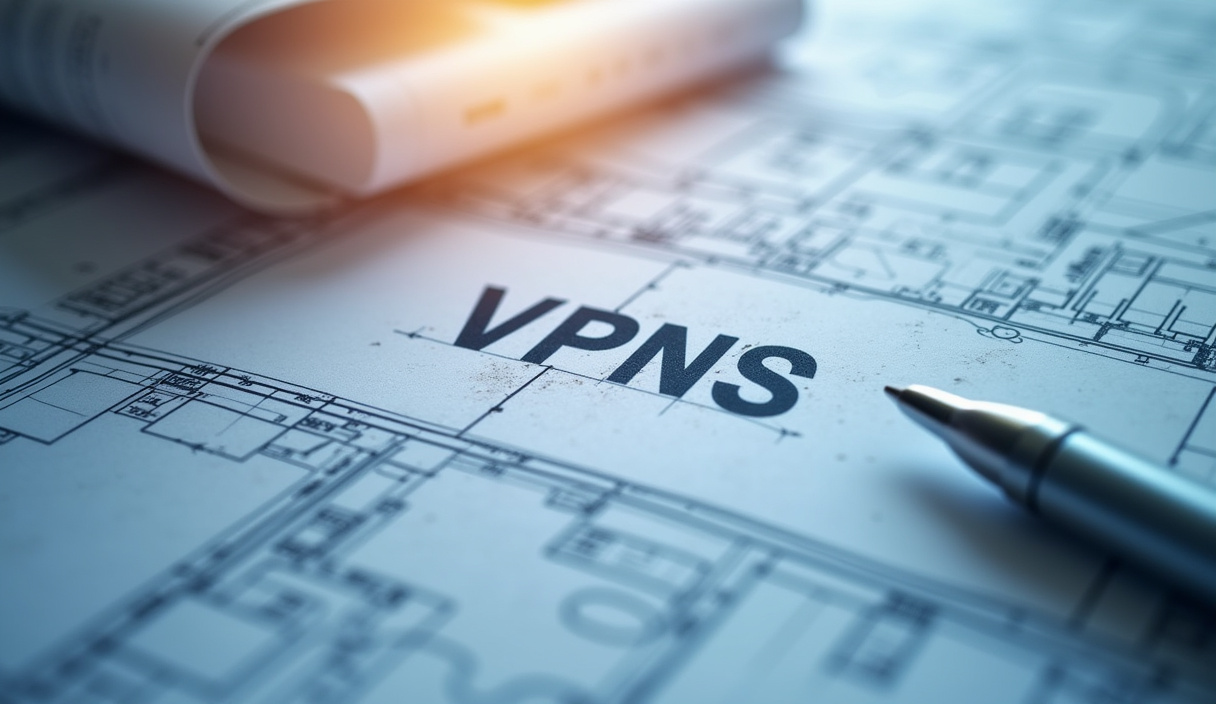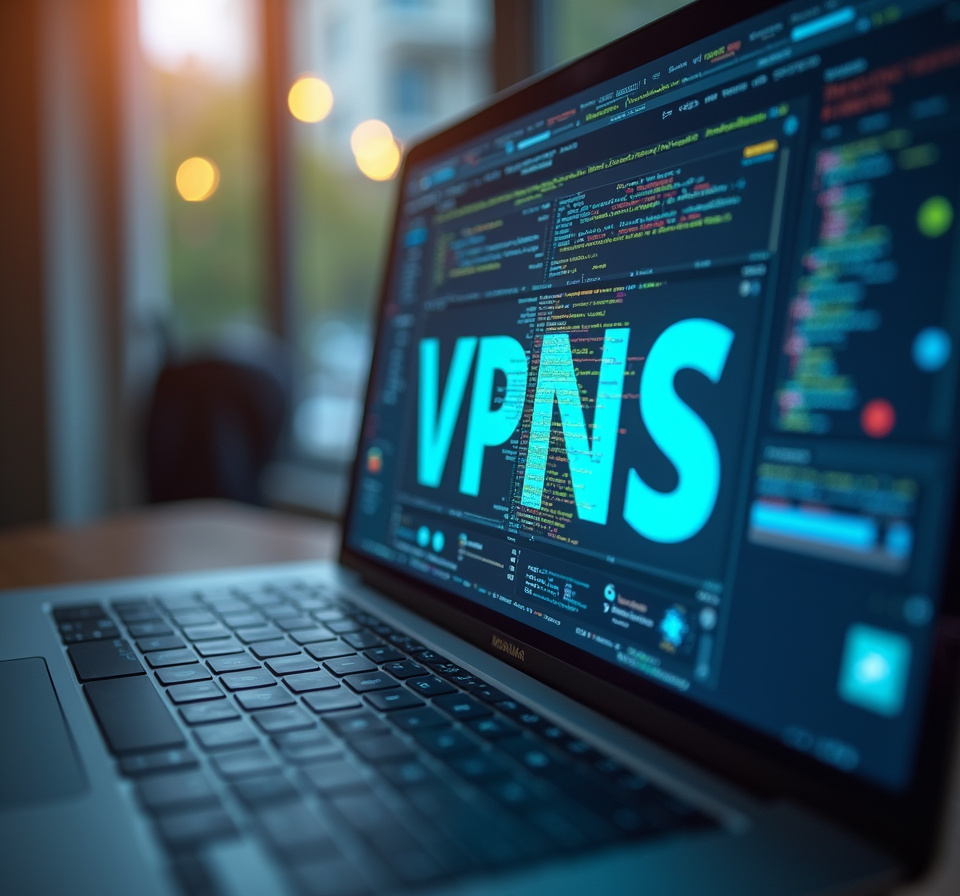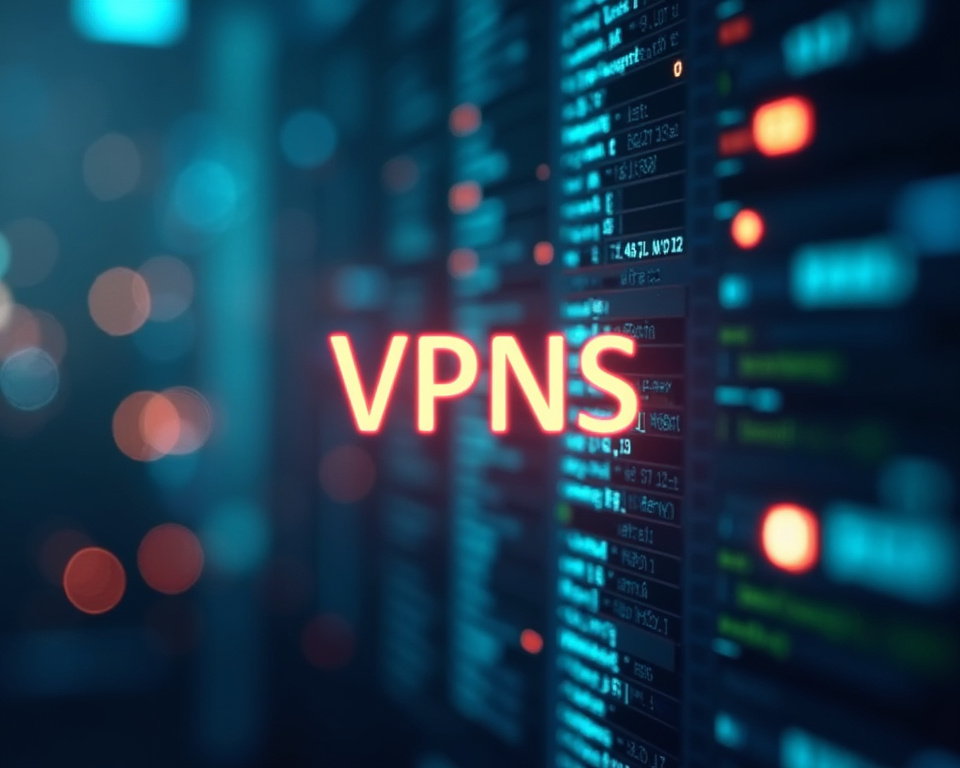VPNs for Graphic Design Agencies: Safeguarding Client Projects

Table of Contents
VPNs for Digital Agencies: Protecting Client Deliverables in the Modern Landscape
Graphic design agencies thrive on creativity, innovation, and the ability to deliver captivating visuals that resonate with target audiences. However, beneath the surface of artistic expression lies a critical responsibility: safeguarding client projects from unauthorized access, data breaches, and intellectual property theft. In today's interconnected and increasingly vulnerable digital landscape, a robust security infrastructure is no longer a luxury but a necessity for graphic design agencies.
A key component of this security infrastructure is a design agency VPN (Virtual Private Network), a powerful tool that provides a secure and encrypted connection for all internet traffic, protecting sensitive data and ensuring client confidentiality. This article delves into the crucial role that VPNs play in protecting graphic design agencies, exploring how they enhance client project security, safeguard creative work, and maintain unwavering client confidentiality. The need for a comprehensive security strategy, with a VPN as a central element, is paramount in a world where cyber threats are constantly evolving and becoming more sophisticated.
The risks associated with neglecting cybersecurity can be severe, ranging from financial losses and reputational damage to legal liabilities and the loss of client trust. A VPN provides a vital layer of protection, creating a secure and encrypted tunnel for all internet communications. This tunnel effectively masks the agency's IP address, making it more difficult for malicious actors to track online activity, intercept sensitive data, or launch targeted attacks.
Imagine the scenario where designers are collaborating on a new branding campaign for a major client. This project involves the exchange of sensitive information, including logo designs, marketing strategies, and confidential market research data. Without a VPN, this data is vulnerable to interception by hackers who could potentially steal the client's intellectual property or use it for malicious purposes.
A VPN encrypts all data in transit, rendering it unreadable to anyone without the decryption key. This ensures that even if an attacker were to intercept the data, they would be unable to decipher its contents, effectively protecting the client's valuable assets. Furthermore, a VPN can enhance creative work protection by controlling the access and restricting the entry to the internal servers and databases where design assets are stored.
Agencies often maintain extensive libraries of logos, images, and other creative elements, which represent a significant investment of time and resources. A VPN can restrict access to these resources to authorized personnel only, thereby mitigating the risk of internal data breaches or accidental data leaks. Consider an agency that has developed a unique and innovative design style that sets it apart from its competitors.
This design style is a valuable asset that needs to be protected from unauthorized use. A VPN can help to prevent competitors from gaining access to the agency's design assets and copying its style. Beyond encryption, a VPN provides an additional layer of anonymity that can be invaluable in protecting an agency's online reputation.
In today's interconnected world, where online reviews and social media comments can quickly impact an agency's brand, it is critical to maintain a positive online presence. By masking its IP address, a VPN can make it more difficult for malicious actors to target the agency with denial-of-service attacks or other disruptive activities. This helps ensure that the agency's website and online services remain accessible to clients and collaborators, maintaining productivity and positive perception.
Finally, a VPN facilitates secure remote access for agency employees who are working from home or on the road. A VPN enables employees to connect to the agency's network through an encrypted tunnel, regardless of the safety of their location and devices.
VPNs for Artists: Safeguarding Creative Works
The selection and implementation of a design agency VPN requires careful consideration and a strategic approach tailored to the specific needs of the agency. It's not a one-size-fits-all solution, and several factors must be weighed to ensure the chosen VPN effectively addresses the agency's security requirements while aligning with its operational workflows and budget. One of the primary considerations is the size of the graphic design agency.
A small agency with a handful of employees may have different requirements than a large agency with multiple offices and remote workers. Larger agencies often require VPNs that can handle a greater number of concurrent connections and offer more advanced features such as centralized management and reporting. The sensitivity of the client projects is another critical factor.
Agencies that handle highly confidential information, such as financial data, healthcare records, or trade secrets, must prioritize VPNs with robust encryption and advanced security features. These agencies may also need to comply with specific industry regulations, such as HIPAA or GDPR, which impose strict requirements for data protection. The technical expertise of the IT staff is also an important consideration.
Some VPNs are easier to install and configure than others, and agencies with limited technical resources may prefer to choose a user-friendly VPN solution that doesn't require extensive technical knowledge. Alternatively, agencies with dedicated IT staff may opt for a more complex VPN solution that offers greater customization and control. A crucial aspect of VPN selection is the choice of VPN protocol.
Several protocols are available, each offering varying levels of security, speed, and compatibility. OpenVPN is widely regarded as one of the most secure and reliable protocols, offering robust encryption and a large open-source community support. IPsec is another popular choice, often used in conjunction with other security technologies such as firewalls and intrusion detection systems.
WireGuard is a newer protocol gaining traction for its speed and simplicity. It is crucial to research and compare different VPN protocols, selecting one that balances security, performance, and compatibility with devices being used. The geographical location of the VPN servers is another significant factor.
Ideally, the servers should be located in countries with strong data privacy laws, ensuring that client data is protected from government surveillance and legal challenges. Agencies should also consider the proximity of the servers to their clients and collaborators, as this can affect the speed and reliability of the VPN connection. A server located closer to the user typically results in lower latency and faster data transfer speeds.
Usability is often overlooked, but it is a crucial aspect of VPN selection. The interface of the VPN should be user-friendly and intuitive, allowing employees to easily connect to the VPN and configure their settings. A complex or confusing interface can lead to user error and reduce the overall effectiveness of the VPN.
Centralized management features are also important for larger agencies. These features allow administrators to monitor VPN usage, configure security settings, and deploy updates to all devices from a central location. Centralized management can greatly simplify the administration of the VPN, reducing the burden on the IT staff and ensuring consistent security across the organization.
Logging and reporting capabilities are essential for maintaining a proactive security posture. The VPN solution should offer comprehensive logging and reporting features, allowing administrators to track VPN usage, identify potential security threats, and generate reports for compliance audits. This information can be used to improve security policies, identify vulnerabilities, and demonstrate compliance with industry regulations.
Finally, the selection of a VPN should be accompanied by clear policies and procedures for its use. Employees must be trained on how to connect to the VPN, how to use it securely, and what to do in case of a security incident. Regular security audits should be conducted to ensure that the VPN is operating effectively and that all security policies are being followed.
VPNs for Graphic Designers: Protecting Design Files
Beyond the technical aspects of selecting and implementing a design agency VPN, there exists a broader landscape of considerations encompassing legal, ethical, and operational factors. A VPN is more than just a piece of software; it's an integral component of a comprehensive security strategy that must be carefully integrated into the agency's overall operations and culture. Legal compliance is a critical consideration.
Agencies must understand the laws and regulations governing VPN usage in the countries where they operate and where their clients are located. Some countries have strict laws regulating the use of VPNs, and agencies must ensure that they are not violating these laws. For example, some countries may prohibit the use of VPNs to circumvent censorship or access illegal content.
Agencies must also be aware of data privacy laws, such as GDPR, which impose strict requirements for the protection of personal data. When using a VPN to transfer client data, agencies must ensure that they are complying with these laws. Transparency with clients is paramount.
Agencies should be transparent with their clients about their use of VPNs, explaining how the technology is being used to protect their sensitive information. Clients should be informed about the security measures in place and given the opportunity to ask questions or express concerns. In some cases, it may be necessary to obtain client consent before using a VPN to transfer their data.
Client agreements should explicitly outline the security measures in place, including the use of a VPN, and specify the responsibilities of both the agency and the client in maintaining confidentiality. A well-defined agreement can help to avoid misunderstandings and disputes down the road. Ethical considerations are also important.
While VPNs can be used to enhance privacy and security, they can also be used for unethical or illegal purposes. Agencies must ensure that their employees are not using VPNs to engage in activities that could harm clients or damage the agency's reputation. For example, employees should not use VPNs to access illegal content, circumvent security measures, or engage in phishing attacks.
Regular training and awareness programs can help to educate employees about the ethical use of VPNs and promote a culture of security within the agency. Operational integration is key to the successful deployment of a VPN. The VPN should be seamlessly integrated into the agency's existing workflows and systems, minimizing disruption and maximizing efficiency.
This may require changes to existing policies and procedures, as well as training for employees on how to use the VPN effectively. The VPN should also be compatible with the agency's existing hardware and software. Compatibility issues can lead to frustration and reduce the overall effectiveness of the VPN.
Performance monitoring is essential for ensuring that the VPN is operating optimally. Agencies should monitor the VPN's performance on a regular basis, tracking metrics such as connection speed, latency, and uptime. Performance issues can indicate a problem with the VPN or the network, and should be addressed promptly.
A dedicated IT staff or a managed service provider can help to monitor VPN performance and troubleshoot any issues that may arise. Security audits should be conducted regularly to ensure that the VPN is operating effectively and that all security policies are being followed. Audits should be performed by independent security professionals who can provide an objective assessment of the agency's security posture.
The results of the audit should be used to improve security policies and address any weaknesses that are identified. Business continuity planning is also essential. Agencies should have a plan in place for how to maintain security and operations in the event of a VPN outage or other security incident.
This plan should include procedures for backing up data, restoring systems, and communicating with clients. Business continuity planning can help to minimize the impact of a security incident and ensure that the agency can continue to operate effectively.
The Role of VPNs for Services in Enhancing Security and Privacy
The implementation of a design agency VPN is not merely a technological upgrade; it represents a fundamental shift in the agency's approach to security. It requires a cultural transformation, fostering a security-conscious mindset among all employees and embedding security best practices into every aspect of the agency's operations. Building a security-conscious culture starts with leadership.
Agency leaders must champion the importance of security and set an example for their employees to follow. They should communicate the agency's security policies clearly and consistently, and they should provide employees with the resources and training they need to understand and comply with these policies. Security awareness training is crucial for educating employees about the risks they face and how to protect themselves and the agency from cyber threats.
Training should cover topics such as phishing attacks, malware, social engineering, and data privacy. It should also provide employees with practical tips on how to use the VPN effectively and how to identify and report security incidents. Regular training refreshes and updates are essential to keep employees informed about the latest threats and security best practices.
Clear and concise security policies are essential for providing employees with clear guidance on how to protect sensitive information and how to use the VPN effectively. Policies should cover topics such as password management, data access control, device security, remote access, and incident response. Policies should be easily accessible to all employees and should be reviewed and updated regularly to ensure that they remain relevant and effective.
Strong password policies are a fundamental aspect of security. Employees should be required to use strong, unique passwords for all of their accounts, and they should be prohibited from sharing their passwords with others. Password managers can help employees to generate and store strong passwords securely.
Multi-factor authentication (MFA) adds an extra layer of security by requiring employees to provide two or more forms of identification when logging in to their accounts. MFA can help to prevent unauthorized access, even if an attacker has stolen an employee's password. Data access control is essential for ensuring that employees only have access to the information they need to perform their jobs.
Access should be granted on a need-to-know basis, and employees should be prohibited from accessing data that they are not authorized to view. Role-based access control (RBAC) can help to simplify the management of data access permissions. Device security is crucial for protecting sensitive information stored on agency devices.
All devices, including laptops, smartphones, and tablets, should be protected with strong passwords and should be encrypted to prevent unauthorized access in the event that the device is lost or stolen. Regular security updates should be installed on all devices to patch vulnerabilities and protect against malware. Remote access security is particularly important for agencies with remote workers.
Employees who are working from home or on the road should only access the agency's network through a secure VPN connection. Remote access policies should specify the security requirements for remote devices, such as the use of antivirus software and firewalls. Incident response planning is essential for preparing for and responding to security incidents.
Agencies should have an incident response plan in place that outlines the steps to be taken in the event of a security breach, data leak, or other security incident. The incident response plan should be tested regularly to ensure that it is effective. Regular monitoring and logging are essential for detecting and responding to security incidents.
Agencies should monitor their network and systems for suspicious activity, and they should maintain detailed logs of all events. Logs can be used to investigate security incidents and to identify vulnerabilities. A Security Information and Event Management (SIEM) system can help to automate the monitoring and logging process.
In conclusion, the adoption of VPNs for graphic design agencies is not merely a trend but a strategic imperative in today's digital landscape. Safeguarding client projects, protecting creative work, and ensuring confidentiality are paramount to maintaining client trust, preserving brand reputation, and fostering sustainable growth. This article has explored the multifaceted benefits of design agency VPNs, highlighting their crucial role in mitigating cyber threats, enhancing security protocols, and enabling secure remote collaboration.
From encrypting sensitive data transmissions to masking IP addresses and controlling access to internal resources, VPNs provide a comprehensive layer of defense against the ever-evolving threats facing the creative industry. The successful integration of a VPN requires a holistic approach that encompasses careful selection, robust implementation, legal compliance, ethical considerations, and a cultural shift towards security awareness. Agencies must prioritize the selection of VPN protocols and server locations that align with their specific needs and regulatory requirements.
They must also establish clear policies and procedures for VPN usage, ensuring that employees are well-trained and equipped to use the technology effectively and ethically. Building a security-conscious culture is paramount to fostering a proactive and resilient security posture. Agency leaders must champion the importance of security, promoting awareness, providing training, and setting clear expectations for employee behavior.
Regular security audits, incident response planning, and performance monitoring are essential for maintaining the effectiveness of the VPN and identifying potential vulnerabilities. Moreover, agencies should remain vigilant and adaptable, continuously monitoring the threat landscape and updating their security measures accordingly. As cyber threats become more sophisticated, so too must the defenses employed to protect sensitive information and creative assets.
By embracing a proactive and comprehensive approach to security, graphic design agencies can safeguard their clients, protect their intellectual property, and position themselves for long-term success in an increasingly competitive digital environment. The investment in a robust VPN solution is an investment in the agency's future, demonstrating a commitment to security and building trust with clients and stakeholders. Ultimately, the decision to implement a VPN is a strategic one that should be driven by a clear understanding of the risks involved and a commitment to protecting the agency's most valuable assets.
By embracing a proactive and comprehensive approach to security, graphic design agencies can confidently navigate the challenges of the digital age and focus on what they do best: creating innovative and impactful visual experiences. In essence, a VPN is not just a tool; it's a symbol of trust, a commitment to security, and a foundation for lasting success in the dynamic world of graphic design. As the creative landscape continues to evolve, VPNs will undoubtedly remain an indispensable asset for agencies seeking to thrive in a secure and collaborative environment earning more trust every day from their customers.
By acknowledging VPNs as a necessity, design agencies can guarantee secure and safe projects, resulting in happier clients and enhanced innovation, and ensure confidentiality in the working process.
Stay Updated
Get the latest VPN news, tips, and exclusive deals to your inbox.




